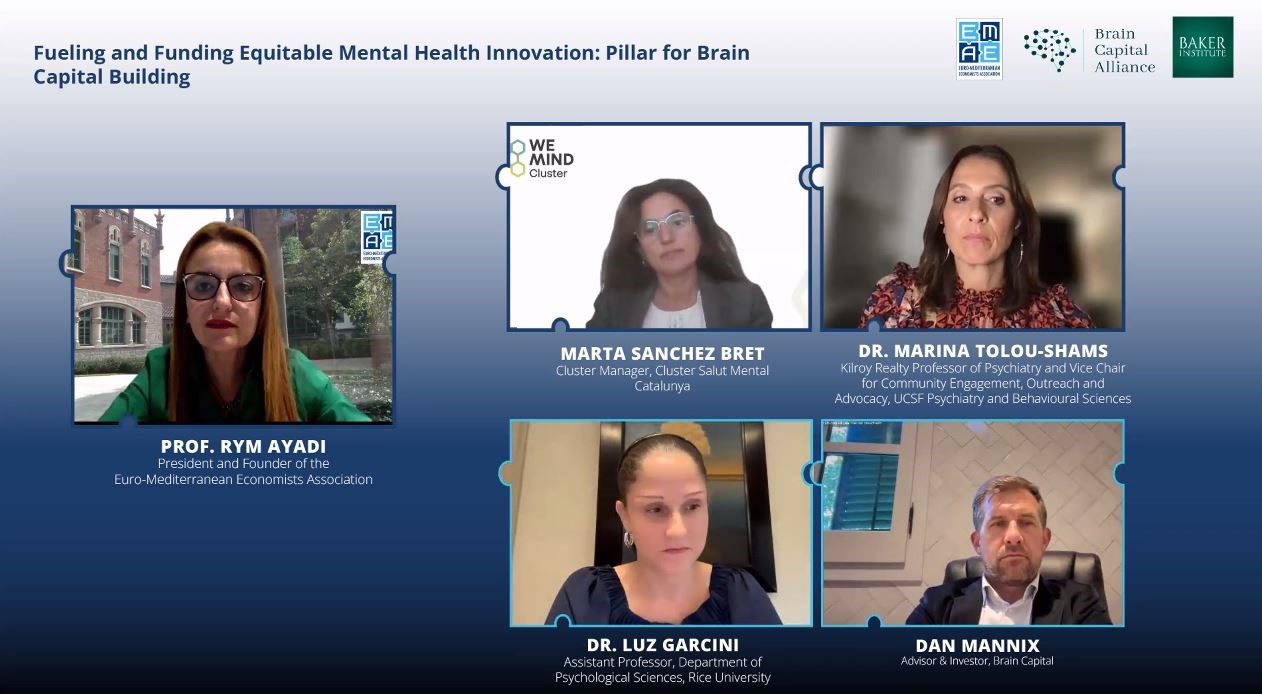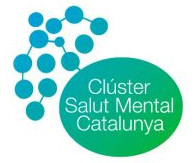We were honoured to participate in EMEA’s Webinar last week. Our Cluster Manager, Marta Sanchez-Bret, gave an overview of the MHC as a key agent in fuelling and funding equitable mental health innovation through collaborative projects involving both the public and private sectors.
And how do we get there?
By promoting the adoption of disruptive technologies through Mental Health Advocacy, rooted in user experiences and their needs:
- A genuine community model is needed, accessible to all.
- An associative movement is both pressing and indispensable.
- Without rights there is no mental health
- A holistic therapy requires employment integration
The MHC, as a non-profit association, promotes competitiveness and employability by fostering an ecosystem built on the concept of the quadruple helix of innovation. It plays a pivotal role in instigating strategic transformations within the realm of Industry 4.0, paving the way for Industry 5.0, all in alignment with the objectives demanded by the users.
Revisiting the past?
Whereas 4.0 focuses on:
Revolutionising manufacturing and distribution processes to improve competitiveness and resilience.
This is accomplished by establishing strategic value chains that can be adjusted to production capabilities and flexible business processes, with a focus on creating value in essential services such as health and safety.
Where is the future leading us?
Industry 5.0 stands for:
- humanisation: technology adapted to the user and
- sustainability, understood as circular process that reduces waste and minimises environmental impact (shared value)
For example, how does full remote work affect Mental Health?
Health/service companies are 80% made up of innovation, HR infrastructure, investment and skill set.
Some UK industries have technological potential for enhancing their productivity, both in terms of efficiency and activity, by adopting full remote work practices, but a recent study from Microsoft’s 2022 New Future of Work Report showed that ‘although remote work can improve job satisfaction, it can also lead to employees feeling “socially isolated, guilty and trying to overcompensate”.’
In conclusion, the Brain Capital Stock construct consists in framing mental health and illness through terms of economic productivity. While this approach may not appear ideal, the reality is that people aspire to be both healthy and productive. Productivity is essentially a measure of how efficiently inputs are transformed into outputs. The concept of Brain Capital Stock aligns well with our field of activity and remains pertinent.










